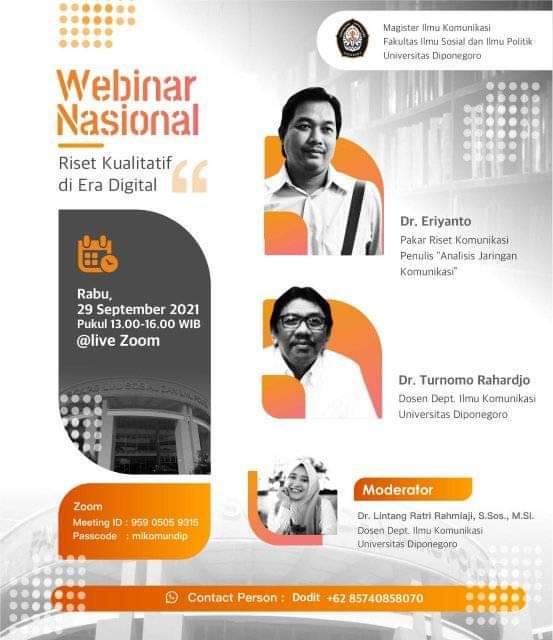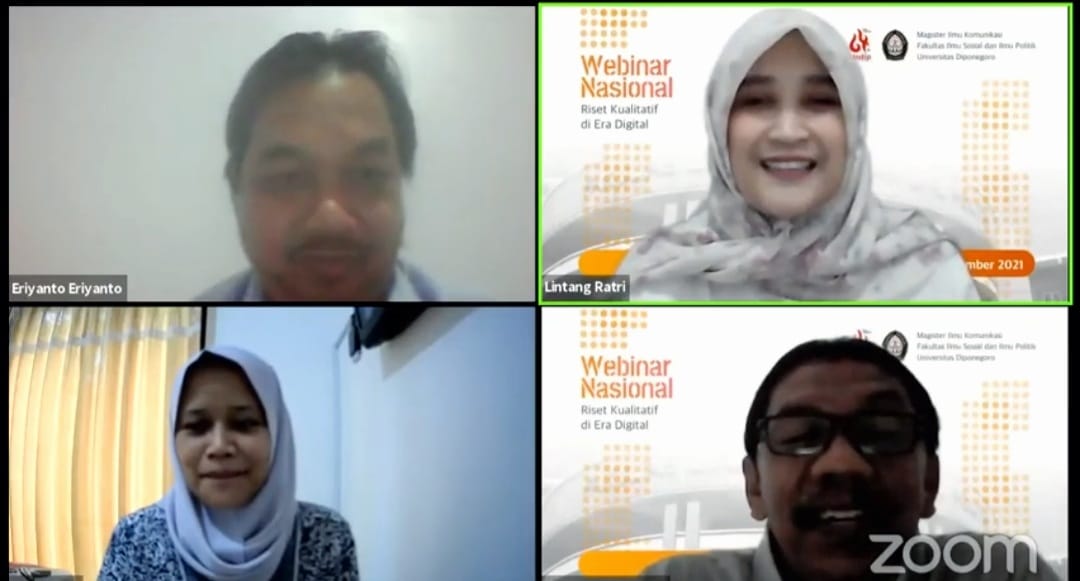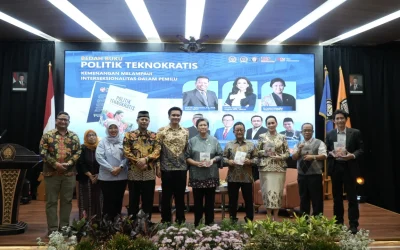Master of Communication Science, Faculty of Social and Political Sciences, Universitas Diponegoro held a National Webinar “Qualitative Research in the Digital Era” (29/9). The event presented several keynote speakers namely Dr. Eriyanto (Lecturer of Universitas Indonesia /Communication Research Expert/Author of “Communication Network Analysis”), Dr. Turnomo Rahardjo (Lecturer of the Communication Science Undip) and it was moderated by Dr. Lintang Ratri Rahmiaji, S.Sos., M.Si (Lecturer of the Communication Science Undip).
In his opportunity, Dr. Turnomo conveyed about phenomenological research. Phenomenology studied what appeared (phainomenon/phenomen) into the subject’s experience, Knowledge (logos) of what appeared (phainomenon), Phainomenon was a reality that appeared in individual perception and the presence of an object, event or condition in somebody’s perception.
“Phenomenology sees object or event from the someone’s perspective as a perceiver. We know an experience or event consciously and test our perception of the event. All we can know is what we experience. Phenomenology means letting something be seen or manifest as it is,” he said.
In phenomenological research, it was to make a summary of the overall research, confirmed the results of the study by stating the differences from previous research, explain the results of research with the possibility of further research, linking research results with the significance of the research, linking research results with the research profession, linking research results with the social relevance and close the explanation by offering the purpose and direction of further research.
While in his presentation entitled Netnography, a Qualitative Approach in Understanding Conversation in Social Media, Dr. Eriyanto said that Netnography started from an online/digital footprint. The digital footprint was the recorded behaviour of people in the digital world. This digital footprint took various forms, ranging from postings on social media, comments on shopping forums, what to look for in search engines, comments on online forums, etc.
The netnographic method had undergone a change (evolution) from the previous study of virtual communities on the internet to the study of conversations on social media. The change in the focus of this netnograph study could not be separated from the development of technology and the presence of social media which had changed the presence of individuals on the internet.
“Netnography is research centred on data or data-sites. Researchers are first dealing with very large amounts of data or big data. Researchers must collect, sort and select the data to be relevant to the research objectives. At this point, researchers can use software especially those used to retrieve data. Even though using software, Netnographic researchers must realize that Netnography research is “first-hand” research, the researcher is the instrument itself. Software should not replace the basic principles of netnography such as engagement and immersion,” he explained. (Linda Public Relations)

Source: undip.ac.id





0 Comments